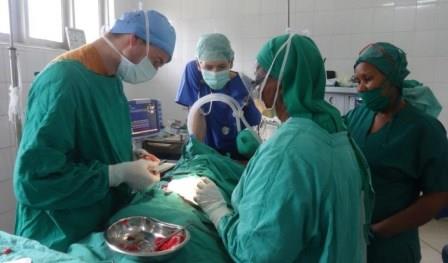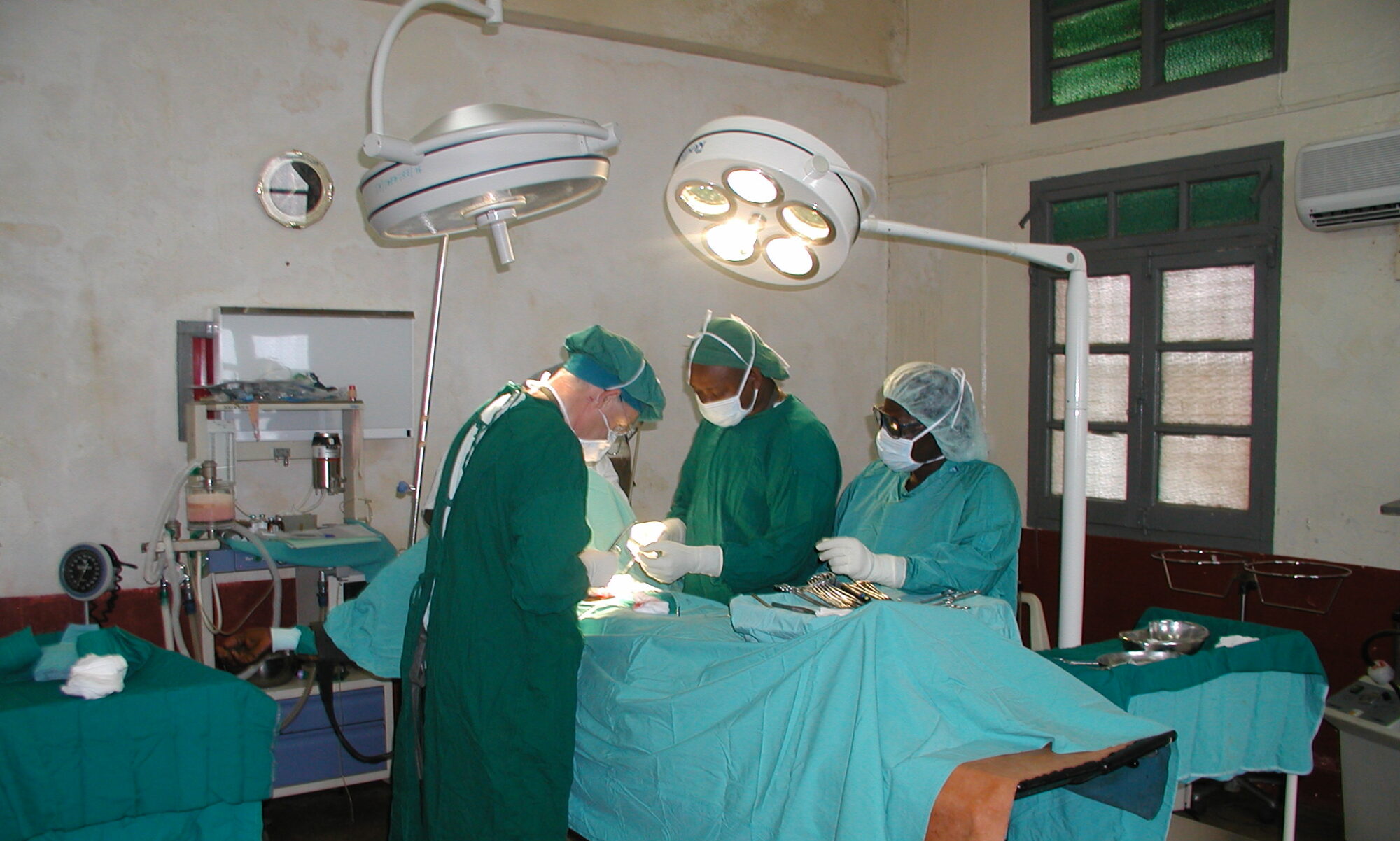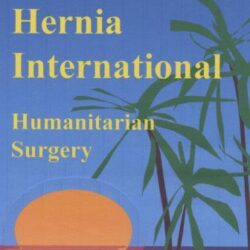Hernia International: Korogwe, Tanzania November 2017 Report
This mission was the 10th Hernia International team to visit Korogwe and the welcome and support that we received from Sister Avelina (lead surgeon) and all the staff was heart-warming. The team comprised Katharina (anaesthetist and excellent team leader from Switzerland), Michael (medical engineer from Switzerland), Margaret (RN from Great Britain), and the surgeons Christoph (from Switzerland), Stefan and Nico (from Germany). Most of the team had previously worked together on another mission so there was a nice feeling of ‘re-union’.

The custom check at Tanzania airport is quite strict especially for the (X-Ray-dense) surgical equipment.It was very helpful that Christoph was able to show the invitation letter from the ministry of health.

Coming from different destinations we met at the Trinity Airport Hotel and spend our first night there, and at 8am the following morning our transport arrived accompanied by Justin our escort (Korogwe dentist). The Land rover roof was packed high with our luggage and supplies and secured with a much needed tarpaulin to cover. There had been heavy rains the day of our arrival and the rain continued for most of our 7 hour journey to Korgowe (Michael likened it to a cloud hernia!). The traffic was pretty dense for the first hour until we hit the outskirts of Dar es Salaam, and the rains hampered our progress somewhat but we eventually arrived at the hospital at 4pm.
We were greeted by Sister Avelina and her team and without much delay taken to the ward where 30 patients waited patiently for review and assessment for surgery. The Korogwe staff had worked hard with their preparations and recruiting of hernia patients, and were very well organised. The next day’s operating schedule was agreed and we then unpacked our supplies and set up the 3 operating rooms ready for work the next day.
Our operating days started at 8am and usually finished by 6pm. We had superb hospital staff to work with, and the efficiency of the sterilising team was amazing – keeping up with supplying a stream of instruments and gowns throughout the day was constant work.

We completed 85 hernia procedures on 72 patients (19 female, 53 male). There were 18 children under 12 years (all had general anaesthesia). Most patients had inguinal or umbilical hernias, we operated 10 epigastric/incisional hernias, mainly in women. 7 adults had general anaesthesia. 27 adults had spinal anaesthesia and 21 had local anaesthesia. There were 6 particularly large/complicated hernias – one of which comprised a mini laparotomy and could be regarded as bordering on major surgery.

There were occasions during the week that we had to stand aside and make available the operating rooms for local emergency surgery that occurred. And it was impressive to observe quite complex surgery and clinical decisions being undertaken with such limited equipment and resources. The learning was endless, along with adapting to new ways of working

– but it has to be said that the connections with the people deepened the whole experience and made it so meaningful. Sister Avelina had invited a junior doctor in surgical training and we are happy to have taught her some hernia operation techniques for further benefit.

Michael, our medical engineer, worked unrelentingly alongside the local engineer/technician. His knowledge, expertise and educational input was invaluable. Infusion and syringe pumps were cleaned and resurrected; anaesthetic machines checked and repaired; theatre tables adjusted; diathermy machines repaired; the steam steriliser serviced and repaired; and fridges in the mortuary attended to………….. and much, much more. Michael was a real asset. If the option was available, every mission could do with having a medical engineer!

Mid-week we changed our accommodation to the `Magnificent Korogwe Hotel (due to ongoing building work and noise at the “White Parrot” Hotel). The title probably does not capture accurately how delightfully quiet it was on an unsealed road, providing comfortable rooms and open court yards in which to relax in the evenings – all a 15 minute walk away from the hospital. The morning and evening walk to and from the hospital on a path through the villages gave insight into daily living – free roaming chickens and goats, small plantations/crops, and children going to school in immaculate uniforms. The hotel provided good food and we would recommend this accommodation for future missions.

All too quickly the week came to an end, but it was not before experiencing (on our last afternoon) the hospitality of Sister Avelina and other nuns at the St Joseph’s convent, a 45 minute drive from Korogwe. It was a most serene setting of landscaped buildings and gardens. On our arrival the local choir was practising under the trees – and it was quite atmospheric to hear the beautiful African harmonies wafting in the evening breeze. Before we left we enjoyed lovely afternoon drinks and food, along with interesting conversations with the nuns about spiritual life in the convent, and education opportunities for the novices in local universities and colleges.
Huge thanks goes to Sister Avelina and all the staff – we have left with great memories and unforgettable experiences that live on and influence our professional practices.
For the whole team: Margaret


